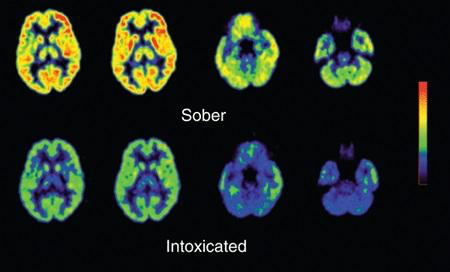TBN Staff: We came across this Joke and just had to share. Followed by the article, should cause all of us to reconsider our approach to the daily grind or routine. After all it is about the quality and length of our lives!
A bald, retired Army helicopter pilot walked into a jewelry store in a local mall this past Friday evening with a beautiful much younger girl at his side. He told the jeweler he was looking for a special ring for his girlfriend. The jeweler looked through his stock and brought out a $5,000 ring. The pilot said, ‘No, I’d like to see something bigger and more special.’
At that statement, the jeweler went to his special stock and brought another ring over. ‘Here’s a stunning ring at only $40,000’ the jeweler said. The lady’s eyes sparkled and her whole body trembled with excitement.The crusty old pilot seeing the huge rock said, ‘We’ll take it.’
The jeweler asked how payment would be made and the pilot stated, ‘Well, by check. I know you need to make sure my check is good, so I’ll write it now, and you can call the bank Monday to verify the funds, and I’ll pick up the ring Monday afternoon.’
On Monday morning, the jeweler angrily phoned the pilot and said, ‘Hey buddy, there was only $25 in your account!’
‘I know’, said the old pilot, ‘But, let me tell you about MY GREAT WEEKEND!!!!
(Yeah, that could have been you)
By Steven M. Sultanoff, Ph.D.
Therapeutic Humor, The Newsletter of the American Association for Therapeutic Humor, Fall, 1998, Vol. XII, 5, p. 1-2. DATELINE: Year 2010
The Health Benefits of Humor Unfold – Humor Reduces the Risk of Heart Disease
After years of controversy about the physiological benefits of humor in one’s lifestyle, researchers have concluded that incorporating humor into one’s day to day responses to events reduces the risk of heart disease, heart attack, and premature death.
Based on research conducted during a ten year period from the year 2000 through 2010, it has been established that individuals who employ humor as a “serious” part of their everyday lives have fewer physical complaints (associated with heart disease), less arterial blockage, fewer angioplasties, fewer heart attacks, and greater longevity when compared to subjects who exhibited a depressive, anxious, or angry lifestyle. It appears that the experience of “pleasant” or mirthful emotions counteracts the deleterious, long-term physical effects of distressing emotions.
Measuring the Humorous Experience
Humorous lifestyle was measured as a person’s ability to receive humor as a cognitive, emotional, and/or physiological experience.
The cognitive component of the humor experience consisted of integrating a “comic vision” into one’s perception of the world. Use of humor to gain perspective, break rigid thinking patterns, and expand life’s options was evaluated. One’s ability to understand and appreciate humor (sometimes referred to as the “experience of wit”) was also explored as part of this cognitive aspect of the humor experience.
Researchers also rated the emotional component of a humorous lifestyle (sometimes referred to as “mirth”). The extent to which humor “lifts one’s spirits” and is felt as joy or pleasure was considered an indicator of this emotional experience.
The physiological component of humor was evaluated as the ability to laugh at life’s encounters. The depth of laughter from a giggle to a belly laugh was rated to assess an individual’s physiological reaction to daily events.
These cognitive, emotional, and/or physiological experiences were measured as indictors of one’s humor quotient. Individuals who were able to generate these kinds of humor reactions to life’s stressors were those individuals who achieved the physiological benefits of reduced heart disease.
Research on Emotions and Health
To fully understand the context of this recent study, we must consider the research reported in the mid-1990’s that demonstrated a significant relationship between chronic depression, anxiety, anger, and/or stress and heart disease (Consumer Reports on Health 1996a, 1996b, 1997a, 1997b, 1997c, 1998; Mind/Body Health, 1996a, 1996c, 1997; Hope Health Letter, 1998).
Studies published from 1996 to 1998 indicated that chronically depressed individuals were 70% more likely to have a heart attack when compared with their non-depressed counterparts (Mind/Body Health, 1996b). In addition, individuals who were depressed cost managed care companies twice as much in medical expenses as individuals who were not depressed (Mind/Body Health, 1996b).
Highly anxious individuals exhibited greater thickening of the arterial walls and were more often in need of repeated angioplasty compared to those who were less anxious. In the mid-1990’s it was estimated that anxiety-related disorders cost $15 billion annually in direct service costs–such as medical, administrative, research, and support services; and $50 billion in indirect costs–such as lost or reduced productivity, family care giving, illness, and death (Mind/Body Health, 1997).
Chronically angry individuals were found to have an increased risk of heart attack and death. In fact, these individuals were four to five times more likely to die from a heart attack compared to those who experienced significantly less anger (Williams and Williams, 1993).
Finally, individuals experiencing elevated levels of stress had greater arterial blockage when compared to individuals experiencing less stress. Researchers concluded that it was not the specific situation that was stressful, but it was the meaning of the situation to the individual that determined the amount of stress experienced by each individual (Hope Health Letter, 1998).
Rationale
The data reported in the mid-1990’s linking emotional distress to physical ailments–heart disease in particular–spawned the research during the years 2000 to 2010. The impact of humor was investigated further because of its apparent and reported impact on the emotional state of individuals. Since this research clearly linked distressing emotions with increased risk for heart disease and premature death, researchers hypothesized that a lifestyle that lowers distressing emotions could potentially lower these health risks and reduce premature mortality.
Anecdotal evidence has long supported the proposition that distressing emotions and humor cannot occupy the same psychological space (Sultanoff, 1997). Depressed individuals report that when they laugh their depression dissolves. Individuals who tend to be anxious frequently report that experiencing humor is a way to better cope and reduce anxiety.
Most of us have experienced situations where we have been angry in a particular situation, and that another person has attempted to use humor to reduce our anger. As we receive the humor, our anger usually dissipates. Sometimes we are not ready to “let go” of our anger and therefore–when in this angry state react to humor with a comment such as, “Don’t make me laugh; I still want to be angry.”
Conclusions
Based on these reports that humor reduces emotional discomfort, researchers proposed that a humorous lifestyle increases an individual’s ability to more effectively manage emotional distress—therefore reducing the damaging physical impact of these potentially harmful emotions.
The results of the research reported in 2010 indicate that a humorous approach to daily life creates healthful changes in cognitive (perspective to the world), emotional, and physiological states. It is these changes that researchers believe lead to improved physical health–particularly related to heart disease. Researchers further concluded that individuals who incorporate a humorous lifestyle into their daily lives are more likely to improve their overall physical and emotional health, thus maintaining optimal wellness.
Have a thought, comment or willing to share your experience? Save us as a favorite in your browser (www.thebacknine.us) or send in your comments or Good Joke to our Contact Us Page at the bottom of our home page.








